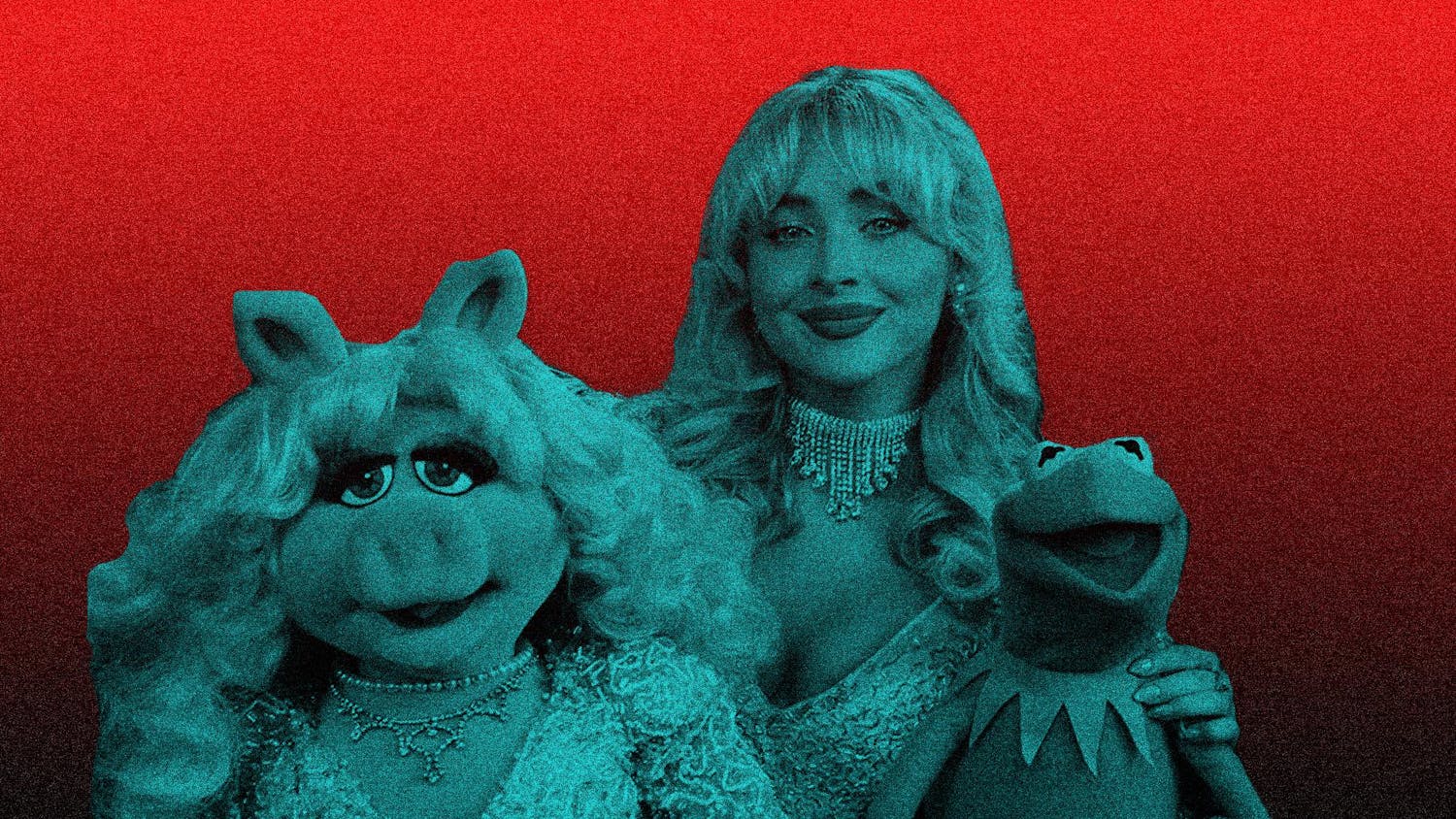
“Barbie,” directed by Greta Gerwig, somehow manages to do it all in its two-hour runtime. It’s a lighthearted reimagining of dolls come to life yet a beautiful exploration of what it means to be a woman in the modern world. It’s a scathing satire of patriarchy and an examination of the meaning and depth of identity as part of the human experience. This is a movie that starts shallow, pink and plastic but evolves into something with surprising critical and philosophical depth. I did not expect to examine the meaning of life in a Barbie movie, but I am here for it.
We follow Barbie as she lives her perfect, pink life in Barbie Land, where all the Barbies live in harmony in their dreamhouses and do everything from winning Nobel prizes to being doctors, lawyers, the president and Supreme Court justices. They are accompanied by their Kens who exist in roles like “beach.” In this perfect, plastic world, feet are always arched, and Every Day is the Best Day.
Everything is perfect — until it’s not, and Stereotypical Barbie (Margot Robbie) must go to the real world to fix it. Her Ken (Ryan Gosling) follows her and along the way discovers patriarchy, which he brings back to Barbie Land to the delight of the other Kens.
The way in which Barbie Land descends into patriarchy delivers a cutting critique of the sexist systems that mirror our own world. The Kens turn the Barbies from presidents and Supreme Court Justices to beer girls, groupies and something to play guitar at. It’s ridiculous, yes, but it represents how current power structures subjugate and objectify women. When the Kens band together and the Barbies don’t fight back, they take all the power until the Barbies cannot fight back, brainwashing them into helplessness and giving the Kens an open path to change the Barbie Land into Kendom officially.
However, the Barbies do fight back. America Ferrera delivers a powerful monologue about what it means to be a woman in the modern world, waking the Barbies up from the brainwashing of patriarchy. She puts into words what the Kens try to institutionalize, and in vocalizing the contradictory expectations of womanhood under patriarchy, she steals it of its power. By giving the power back to the Barbies, she enables them to work together to stop patriarchy in its tracks and restore Barbie Land. The metaphor is very on the nose, but that is part of the beauty of it. In being so literal about Barbie saving Barbie Land from patriarchy, the movie reduces the power structure that has subjugated women for forever into something that can be voted away, suggesting that if the Barbies can do it, so too can real women, because it is as shallow, ridiculous and contradictory as the movie suggests.
On the flip side, for the Kens, the movie offers a glimpse into how patriarchy also damages those it is supposed to benefit. They resort to it as a result of an identity crisis born of Beach Ken wanting more attention from his Barbie than he gets. Patriarchy, however, does not fix this. It merely turns the Barbies into objects for the Kens amusement. It does not address the root of the problem — the hole left by their own lack of independence, identity and self-confidence. They learn that must come from them. Ken is “Kenough” without Barbie, and he is not entitled to Barbie’s attention. They are both independent, individual people, and that is OK.
Barbie, too, goes through a transformation where she learns to feel. In the beginning, Barbie Land was “perfect.” In reality, it was shallow, and this shallowness created the flaws that let patriarchy in. In her journey to save Barbie Land, she learns that true beauty comes from complexity, from the contradictions and imperfections of humanity. The movie starts by suggesting that Barbie (in her unachievable imperfection) is all women and ends with unachievably perfect Barbie choosing to become human because our imperfections are our perfections, and that is a beautiful thing.
Read More
Trending









